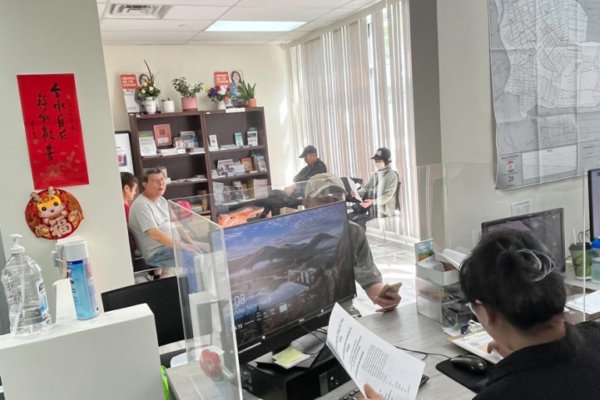In recent months, there has been a sharp increase in cases of electronic benefit transfer (EBT) card fraud, with many elderly individuals finding their cards drained of funds, leaving only a few cents. According to the announcement made by Council Member Huang Minyi on December 13th, in the past four months, there have been nearly 2000 cases of EBT card fraud in the 20th District.
Huang Minyi stated that her office has recently received an “alarming number” of reports from people whose EBT cards have been fraudulently used. These individuals sought help from her office, reporting the theft of their food stamp benefits and requesting assistance in seeking compensation. She said, “In my district, from August 1st to December 11th, there have been close to 2000 cases of theft, with some people losing thousands of dollars.”
To address this issue, Huang Minyi met with Kevin Coleman, the commanding officer of the 109th Precinct of the New York City Police Department. The 109th Precinct promptly contacted several supermarkets in Flushing where incidents of card theft and unauthorized usage were reported. The supermarket owners agreed to inspect their card readers and pledged to inform their staff that any involvement in card fraud would result in termination and arrest.
One local resident, Ms. Xu, shared her experience, stating that she receives a monthly food assistance of $291. On December 11th, she noticed $258 remaining in her EBT card after shopping. However, when she visited a supermarket in Flushing on December 12th, she was shocked to find that only $4 was left in her card, indicating that someone had fraudulently used her funds.
Thieves utilize various methods to commit EBT card fraud, including online transactions and in-person transactions at retail stores. Individuals can visit the EBT website at www.ebtedge.com to disable online transactions, which can prevent unauthorized online and out-of-state purchases, although it may not prevent in-store fraud.
To safeguard their accounts, individuals can visit the official EBT website at www.ebtedge.com, log into the Cardholder Portal, choose “Protect My Account,” select “Block Internet Transactions” and “Block Out of State Transactions,” set both options to “On,” and save the settings.
According to the notification from the New York City Human Resources Administration/Department of Social Services (HRA/DSS), claims for EBT card fraud incidents occurring on or before December 20th must be filed within 30 days of the occurrence to be eligible for compensation. However, there is currently no compensation policy for incidents happening after December 20th.
The HRA website also explains that EBT card fraud occurs when criminals install card skimmers on store card readers to copy card information, enabling them to create counterfeit cards to access account funds. In the event of EBT card fraud, it is crucial to report the incident promptly, apply for a new card, and change the PIN.
Reporting EBT card fraud can be done by visiting https://www.connectebt.com/ or contacting EBT customer service at 888-328-6399. When filing a claim, it is necessary to provide details of each fraudulent transaction, including the date, location, and amount. These records can be accessed at ebtedge.com or by calling 888-328-6399.
To file a claim, individuals must submit their Client Identification Number (CIN), case number, current mailing address, and details of each fraudulent transaction, including date, location, and amount.
Once fraudulent transactions are identified, submit a claim by visiting nyc.gov/hra, the fastest method, or by visiting a Benefits Access Center (BAC), SNAP Center, or HIV/AIDS Services Administration (HASA) center.

